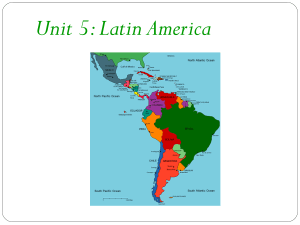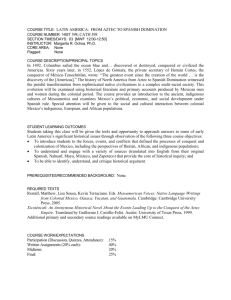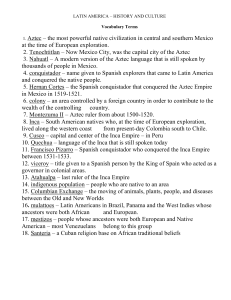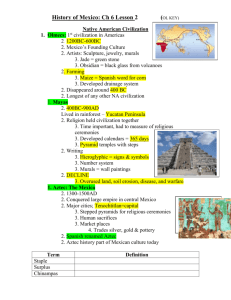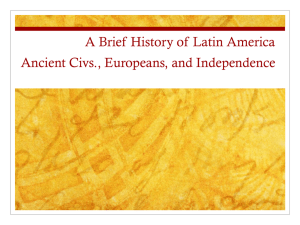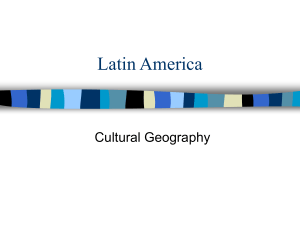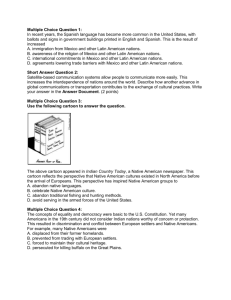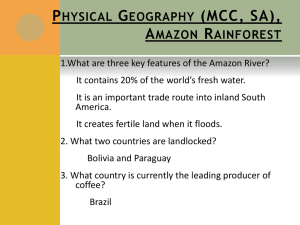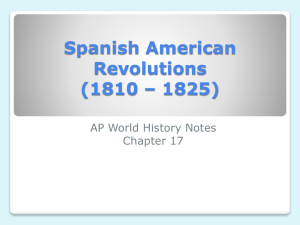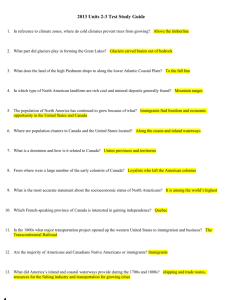Unit 5 Test Review Notes
advertisement
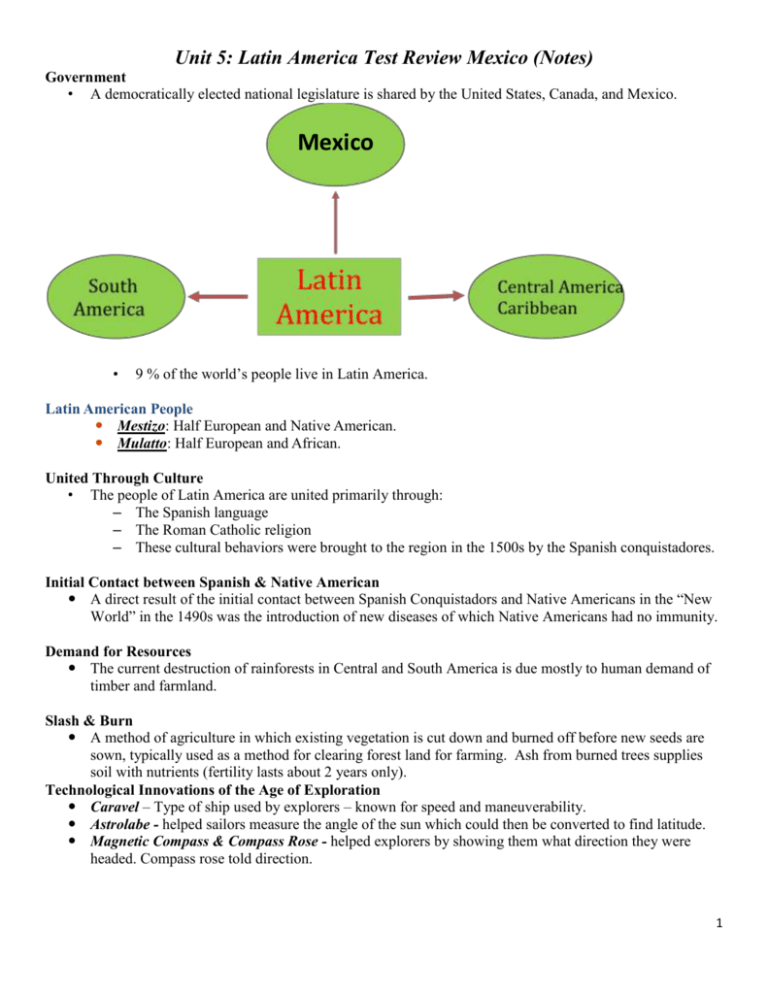
Unit 5: Latin America Test Review Mexico (Notes) Government • A democratically elected national legislature is shared by the United States, Canada, and Mexico. Mexico • 9 % of the world’s people live in Latin America. Latin American People Mestizo: Half European and Native American. Mulatto: Half European and African. United Through Culture • The people of Latin America are united primarily through: – The Spanish language – The Roman Catholic religion – These cultural behaviors were brought to the region in the 1500s by the Spanish conquistadores. Initial Contact between Spanish & Native American A direct result of the initial contact between Spanish Conquistadors and Native Americans in the “New World” in the 1490s was the introduction of new diseases of which Native Americans had no immunity. Demand for Resources The current destruction of rainforests in Central and South America is due mostly to human demand of timber and farmland. Slash & Burn A method of agriculture in which existing vegetation is cut down and burned off before new seeds are sown, typically used as a method for clearing forest land for farming. Ash from burned trees supplies soil with nutrients (fertility lasts about 2 years only). Technological Innovations of the Age of Exploration Caravel – Type of ship used by explorers – known for speed and maneuverability. Astrolabe - helped sailors measure the angle of the sun which could then be converted to find latitude. Magnetic Compass & Compass Rose - helped explorers by showing them what direction they were headed. Compass rose told direction. 1 Central America and the Caribbean Central America is an isthmus that joins North and South America. Belize The only country in Central America whose official language is “English.” Panama Canal A boat traveling from New York to San Francisco saves 7,872 miles by using the Panama Canal instead of going around Cape Horn! Soccer Favorite national sport of most Latin American countries. Originated in “Old World” – brought to “New World” by European sailors who played in Buenos Aires, Argentina in late 1800s. Pre-Colombian Civilizations The three (3) Pre-Colombian native American civilizations that dominated parts of Latin America were the Aztec, Inca, and Maya. Economic Development All nations have a market economy- except Cuba which has a command economy (i.e. communism). To promote more trade and the development of industry, the countries have joined together and formed Caricom. Caricom is the equivalent of NAFTA Mexico Physical Features What is a Peninsula? • Peninsula- land with water on three sides. • Mexico has 2 large peninsulas: – Baja California – Yucatan Climates, Biomes, and Natural Resources (of Mexico) • Oil and natural gas (petroleum) are the most important natural resources today in Mexico. 2 Aztec • Montezuma thought Cortez was a god named Quetzalcoatl (“Feathered Serpent”), who Aztec legend described him as white, with a beard and would come back from the east to reclaim his empire. • The Aztec were finally conquered in 1521 by the Spanish, led by Hernan Cortez. Chinampas Chinampas: Known as “floating gardens” are artificial islands or peninsulas created by scooping nutrient-rich lake, swamp or pond muck into a woven cage so that crops can be grown above the waterline in a wet environment. The Colonial Period • They brought the Spanish language and Roman Catholic religion to Mexico. Modern Mexico… • Maquiladoras (large factories) produce many items (American owned, usually). • Mexico is part of NAFTA. • Mexico is moving to become a developed nation. • Among Mexico City’s many problems is a lack of housing and a large unemployment rate. South America Landforms (South America) • The Andes extend along the Pacific coast of South America for 4400 miles. They were formed by tectonic activity. • Waterfalls – Angel Falls, world’s tallest waterfall, located in Venezuela. Ecosystems (South America) • South America has the largest tropical rain forest in the world. • Rain forests cover only 6 % of the Earth's surface, yet they contain more than 50% of the world's plant and animal species! • Atacama Desert located along the west coast of South America from Chile to Peru, it is considered the driest place on earth. • Atacama Desert is so dry because of the prevailing winds go from East to West, and a rain shadow effect is caused by the high Andes Mountains. The Inca The Inca were South America’s greatest early civilization. They were the only ancient native civilization that did not have a written language. Culture “The Girl from Ipanema” was a Bossa Nova song from 1962 that became an international hit. The song originated in Rio de Janiero, Brazil and the music is derived from samba but placing more emphasis on melody and less on percussion. 3 Columbian Exchange Settlement Patterns Large cities are usually along coasts or seaports. Import/Export Transportation Fishing Mild Climate The Economy (South America) 40% of the world’s coffee comes from South America. 4
